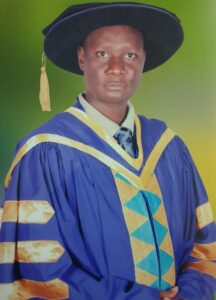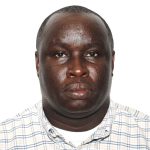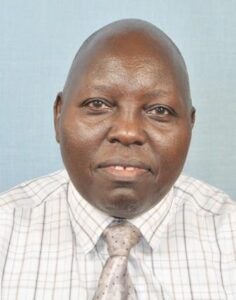 The Centre for Global Health Research (CGHR) is a Kenya Medical Research Institute (KEMRI) facility located in western Kenya. Since it was established in 1984, the CGHR has furthered research on infectious diseases of medical importance. The CGHR has a rich history in cutting-edge research focused on clinical efficacy of drugs for the treatment of tropical diseases, emergence of drug and vector resistance, epidemiology, immunology, molecular biology, genetics, vector biology, and climate and human health. Researchers have pursued characterization of malaria vaccine candidate antigens, malaria vaccine trials, malaria in pregnancy and children, the interaction of malaria and HIV-1, schistosomiasis, intestinal helminthes, HIV/AIDS and its impact on the community, HIV interaction with other infectious diseases, tuberculosis, and reproductive health. The CGHR has been a central partner with Dr. Perkins at UNM since establishing the research and training partnership in Kenya 14 years ago.
The Centre for Global Health Research (CGHR) is a Kenya Medical Research Institute (KEMRI) facility located in western Kenya. Since it was established in 1984, the CGHR has furthered research on infectious diseases of medical importance. The CGHR has a rich history in cutting-edge research focused on clinical efficacy of drugs for the treatment of tropical diseases, emergence of drug and vector resistance, epidemiology, immunology, molecular biology, genetics, vector biology, and climate and human health. Researchers have pursued characterization of malaria vaccine candidate antigens, malaria vaccine trials, malaria in pregnancy and children, the interaction of malaria and HIV-1, schistosomiasis, intestinal helminthes, HIV/AIDS and its impact on the community, HIV interaction with other infectious diseases, tuberculosis, and reproductive health. The CGHR has been a central partner with Dr. Perkins at UNM since establishing the research and training partnership in Kenya 14 years ago.
Site Director
Professor Collins Ouma , Professor, Maseno University School of Public Health and Community Development
, Professor, Maseno University School of Public Health and Community Development
collinouma@yahoo.com
Prof. Collins Ouma is the Program Leader, Health Challenges and Systems within the African Population and Health Research Center (APHRC), where he leads amongst other things translation of research evidence to policy. His research focuses on public health, genetic, and environmental factors that predisposes the human populations to both infectious and non-infectious diseases in sub-Saharan Africa.
Mentors

Dr. Samuel Bonuke Anyona, Lecturer, Medical Biochemistry, Maseno University
sbonuke@gmail.com
Dr. Anyona is a faculty member in the Department of Medical Biochemistry, School of Medicine, Maseno University and a post-doctoral fellow under the career development (K43) grant award. His research activities focus on pediatric populations living under intense malaria transmission in western Kenya, a region holoendemic for Plasmodium falciparum. Dr. Anyona acquired hands-on experience with various techniques including; molecular genetics, molecular biology (including cloning and construct designs), biochemical and immunofluorescence analyses (both by flow cytometry and microscopy), bioinformatics, and statistics. Dr. Anyona is an alumnus of the HBNU Fogarty Global Health Fellowship Program.
Dr. George Ayodo , Senior Lecturer, School of Health Sciences, Jaramogi Oginga Odinga University of Science and Technology School of Health Sciences
, Senior Lecturer, School of Health Sciences, Jaramogi Oginga Odinga University of Science and Technology School of Health Sciences
gayodo@gmail.com
Dr. Ayodo is a basic science researcher trained in genetic epidemiology of infectious diseases but now focusing on applied epidemiology and implementation research. The focus of his work is to develop community intervention models to eliminate or sustain low transmission of infectious diseases. I am also actively involved in understanding the origin of man in attempt to understand the biology of diseases of conditions such as sickle cell disease.
Dr. Kiprotich Chelimo, Senior Lecturer of Biomedical Sciences and Technology, Maseno University
chelimokiprotich@gmail.com
Dr. Chelimo is involved in a number of long-term active and ongoing training and research collaborations with several international institutions including: University of New Mexico-USA (current institution ofaffiliation for Dr. Perkins), University of Massachussets Medical School (MA-USA), Case Western Reserve University (Ohio-USA), Kenya Medical Research Institute (KEMRI, Centre for Global Health Research), and International Cancer Institute (Kenya). His current focus in these collaborations is to work closely with other expert scientist in supporting and nurturing a crop of upcoming scientists in my area of expertise. To date, as a senior Faculty at Maseno University in Kenya, he has mentored over 12 postgraduate students to completion.

Dr. Michael Gicheru, Associate Professor of Immunology, Kenyatta University
gicheu.michael@ku.ac.ke
Dr. Gicheru has long-term active and ongoing collaborations with Kenya Medical Research Institute (KEMRI, Centre for Global Health Research), Maseno University, University of New Mexico-USA (current institution of affiliation for Dr. Perkins), and several other institutions with current common interests in Africa with the main aim of forming a consortium to effectively mentor endemic area scientists. To date, as a senior Faculty at Kenyatta University in Kenya, he has mentored over 90 postgraduate students to completion. Dr. Gicheru has contributed to the development of vervet monkey model for leishmaniasis and evaluation of leishmania vaccine candidates in nonhuman primate model.
Dr. John Michael Ong’echa, Principal Research Officer, Kenya Medical Research Institute
Dr. Ong’echa is a Principal Research Officer with the Kenya Medical Research Institute (KEMRI) and a Senior Research Fellow at the Centre for Research in Therapeutic Sciences (CREATES), Strathmore University, Kenya. He has significant experience working on the genetics and immunology of infectious diseases. His training in immunology and genetics and many years working on Dr. Perkins’ NIH-funded project entitled “Genetic Basis of Severe Malarial Anemia – R01 AI051305” and my FIC funded R01 (Global Research Initiative Program (GRIP) – R01 TW007631) titled ‘Molecular Immunologic Role of Cytokines in the Development of Malarial Immunity’ (2007-2011) has given him adequate experience in conducting field studies. In addition, through Dr. Perkins’ D43 training grant (D43 TW005884) where I served as the Program Co-Director, he has been able to successfully mentor a large number of African scientists, most of whom have now developed independent careers in research. Dr. Ong’echa has also been involved in other additional multi-country and multi-institutional training programs.
Professor Collins Ouma , Professor, Maseno University School of Public Health and Community Development
, Professor, Maseno University School of Public Health and Community Development
collinouma@yahoo.com
Prof. Collins Ouma is the Program Leader, Health Challenges and Systems within the African Population and Health Research Center (APHRC), where he leads amongst other things translation of research evidence to policy. His research focuses on public health, genetic, and environmental factors that predisposes the human populations to both infectious and non-infectious diseases in sub-Saharan Africa.

Dr. Evans Raballah, Senior Lecturer, Department of Medical Laboratory Sciences, Masinde Muliro University of Science and Technology
eraballah@mmust.ac.ke
Dr. Raballah is a Senior Lecturer in the Department of Medical Laboratory Sciences. He holds a doctorate degree in Immunology, specializing in Immunogenetics of infectious diseases. His academic and research interests are in the fields of malaria, bacteremia, HIV and COVID-19. His major scholarly contribution was defining the CD4+ cells and their intracellular IFN-g and IL-17 cytokines in severe malarial anemia in a pediatric population of western Kenya. He has further published over 25 manuscripts in peer reviewed refereed journals. In 2016, he received the Junior Researcher of the year award of Masinde Muliro University of Science and Technology. He currently serves as the Co-ordinator of Medical Biotechnology program in the department of Medical Laboratory sciences and a member of the departmental postgraduate committee. Dr. Raballah is an alumnus of the HBNU Fogarty Global Health Fellowship Program.
